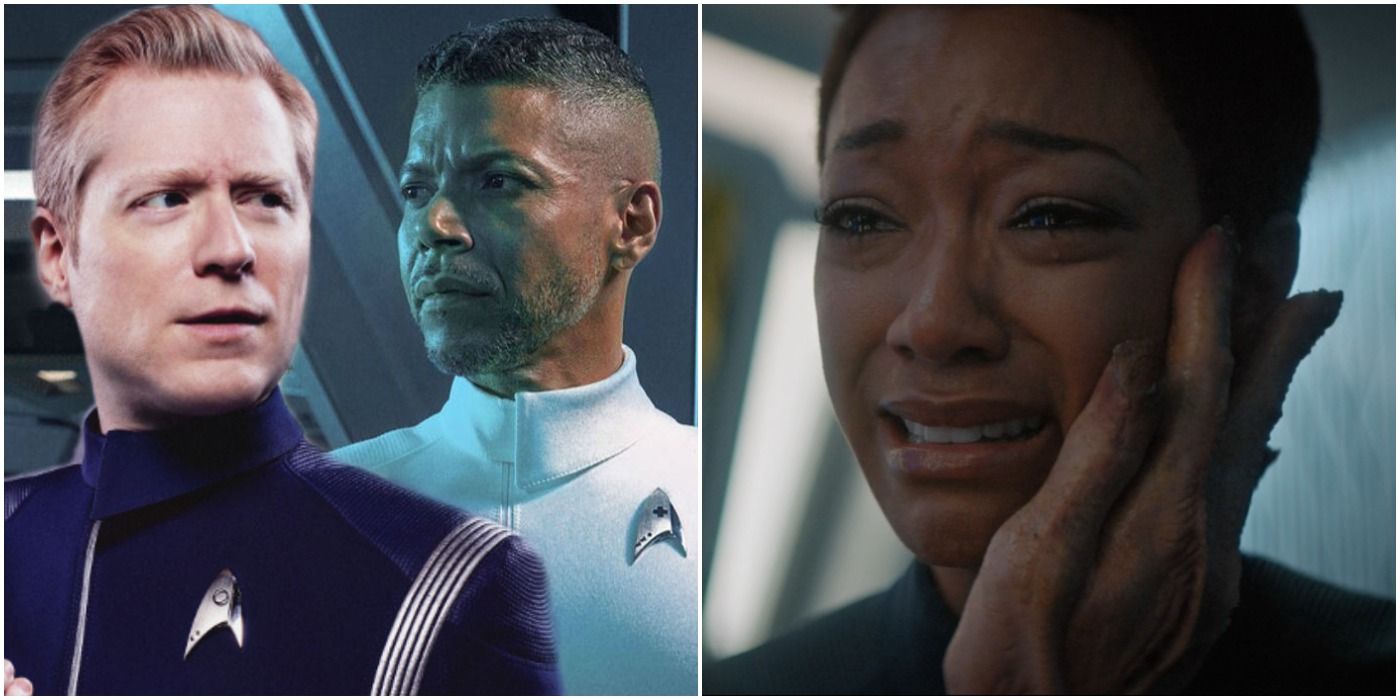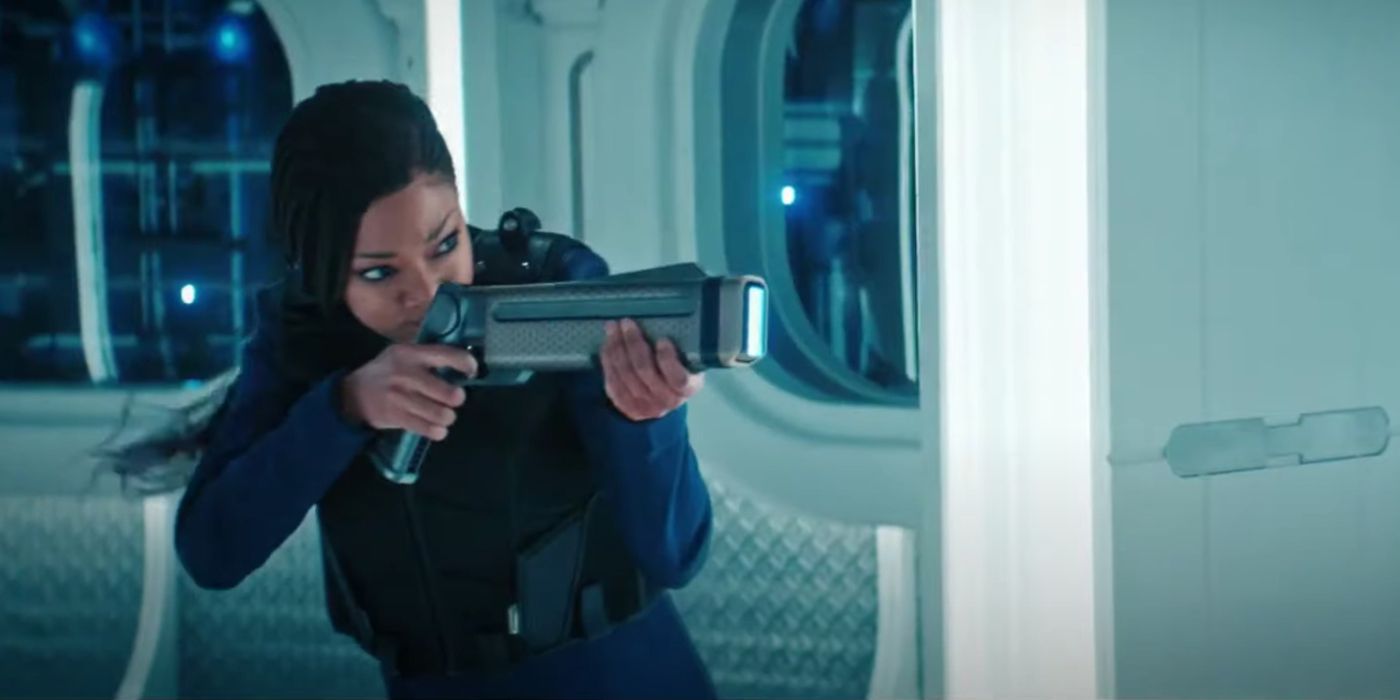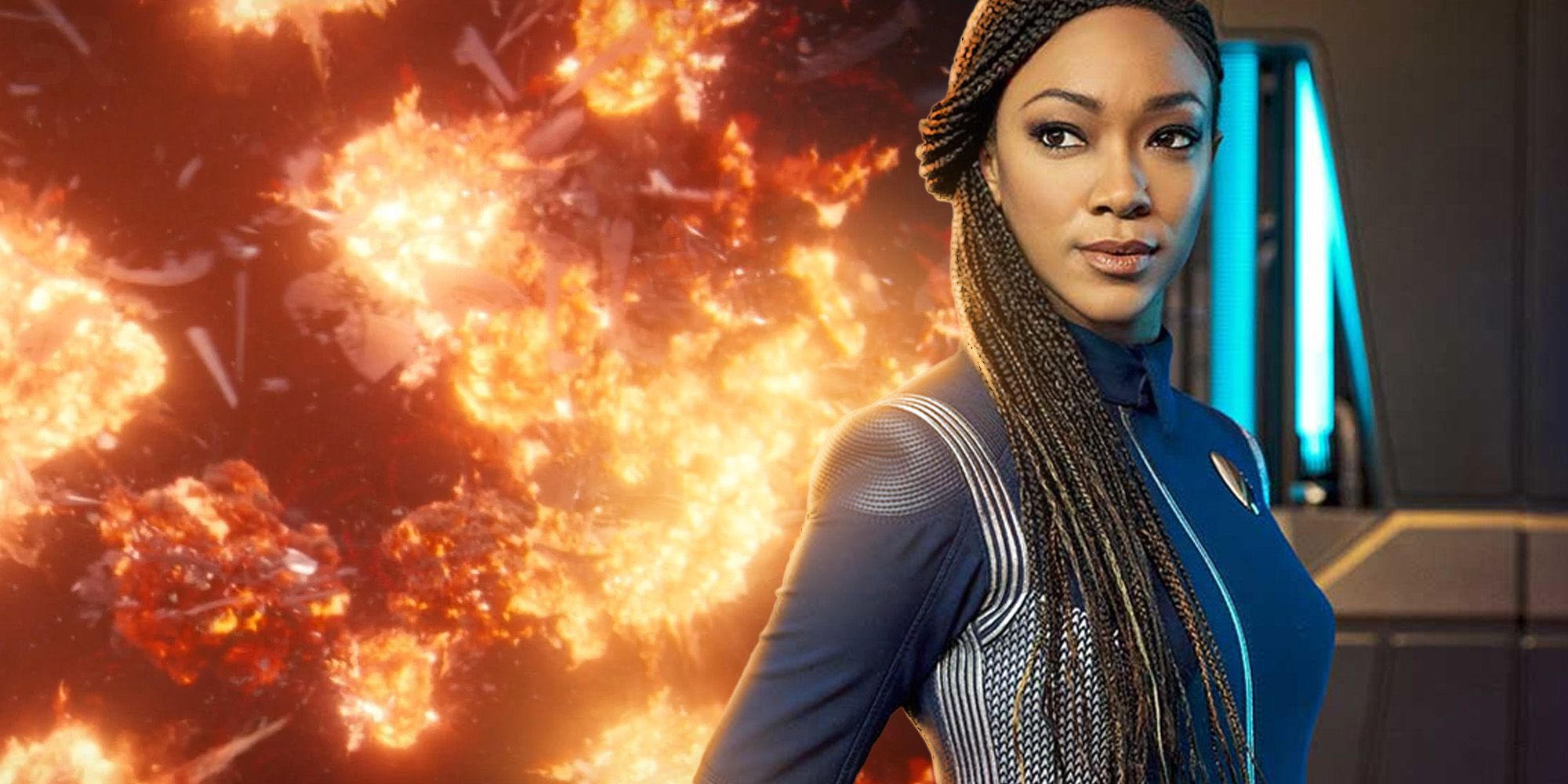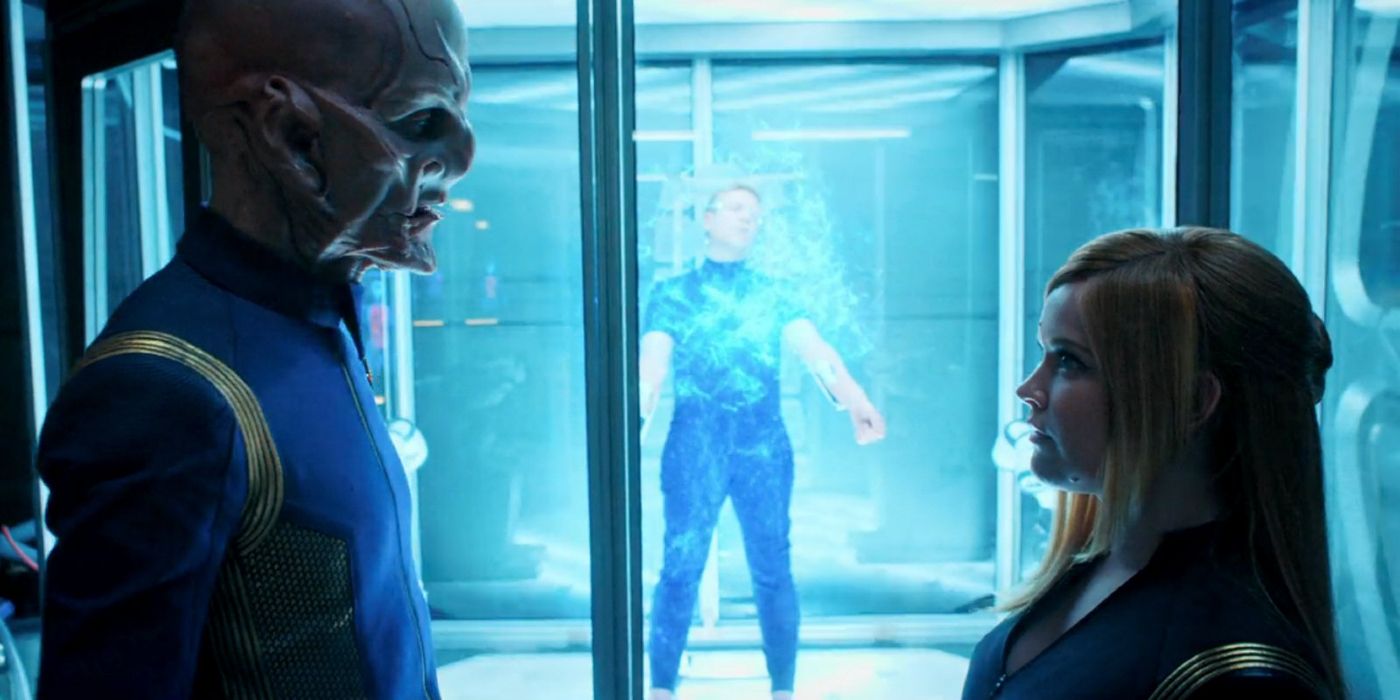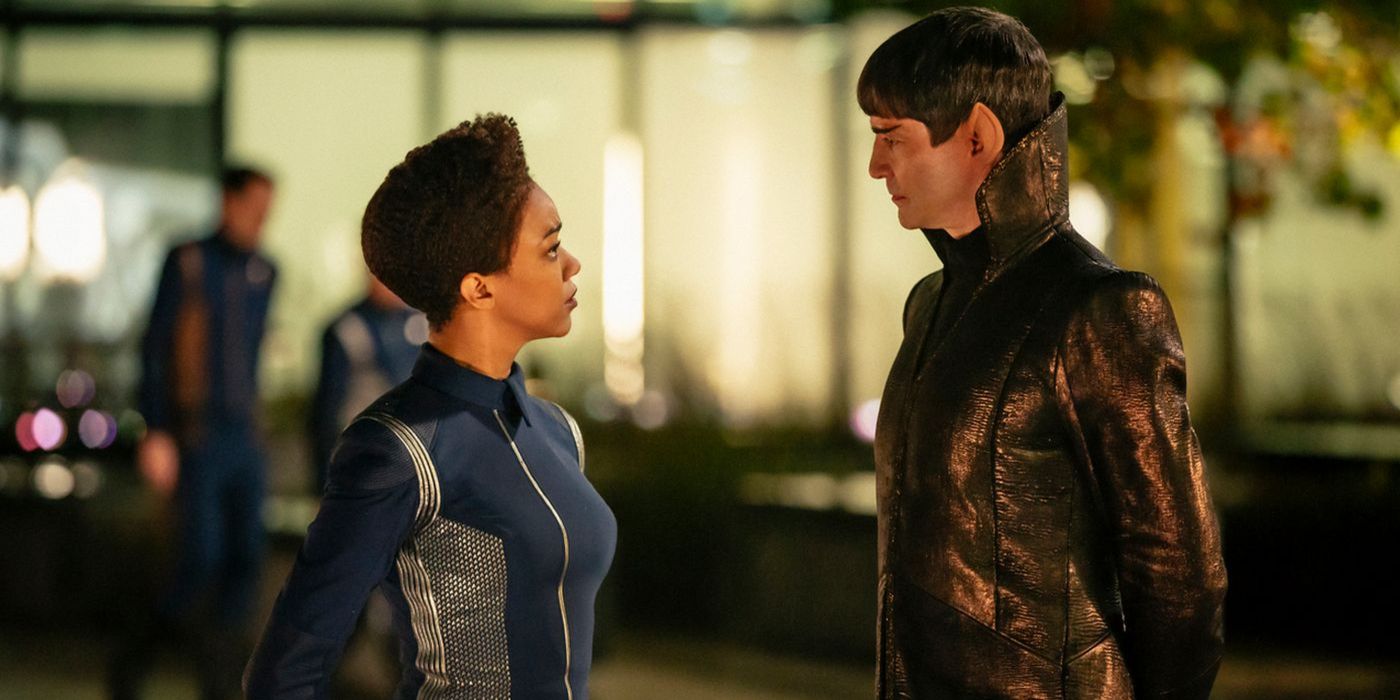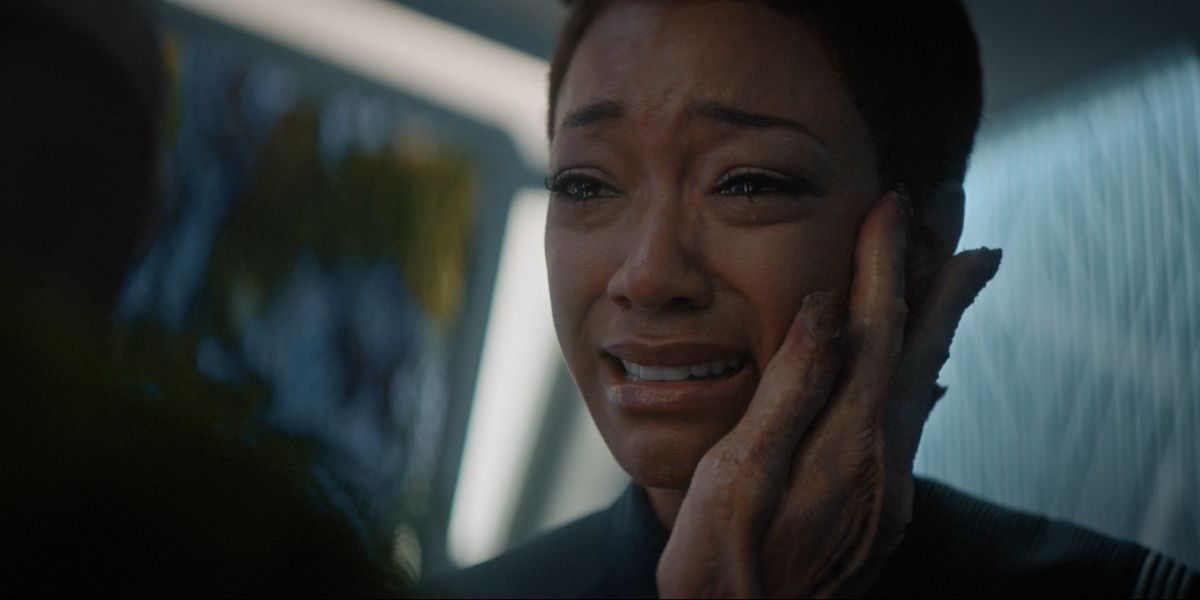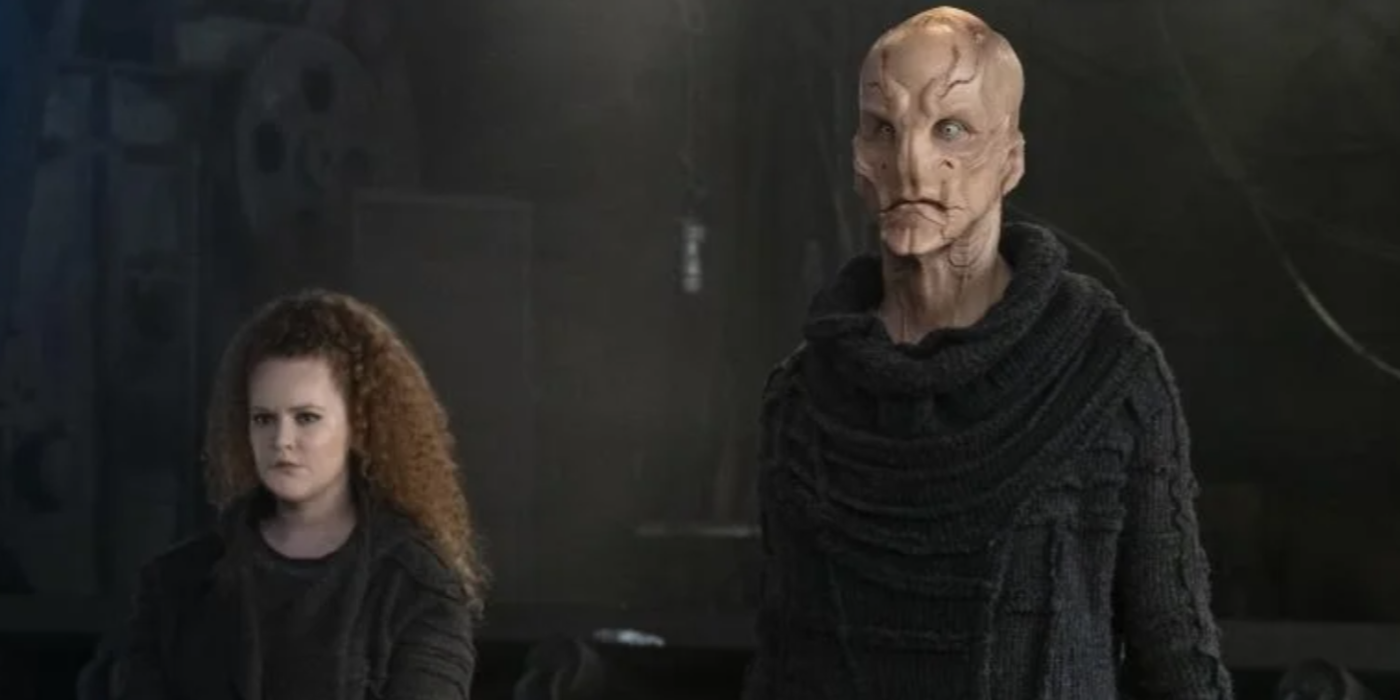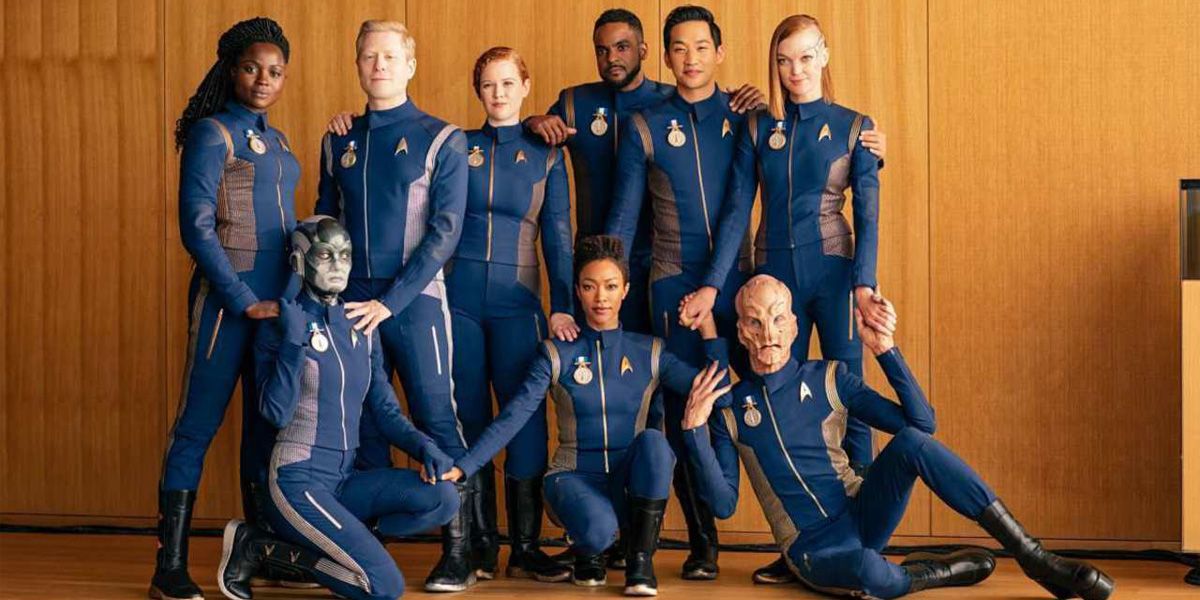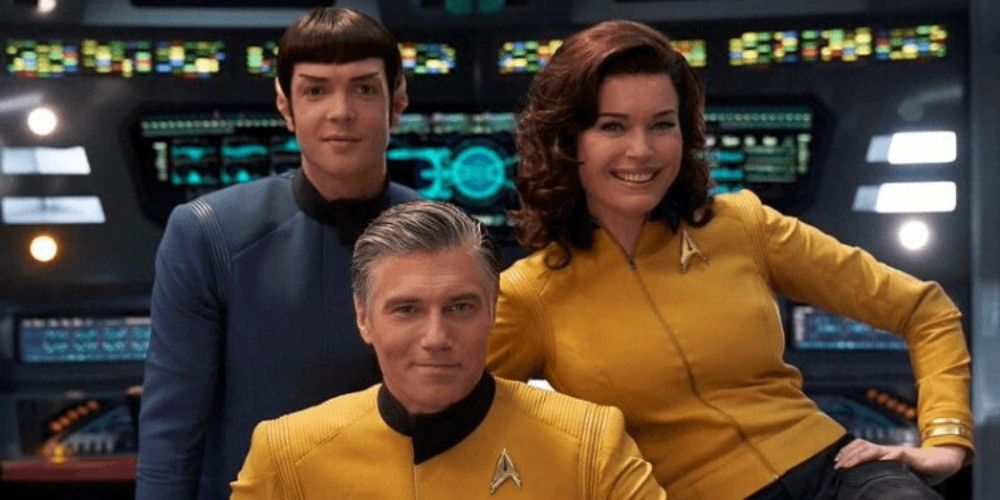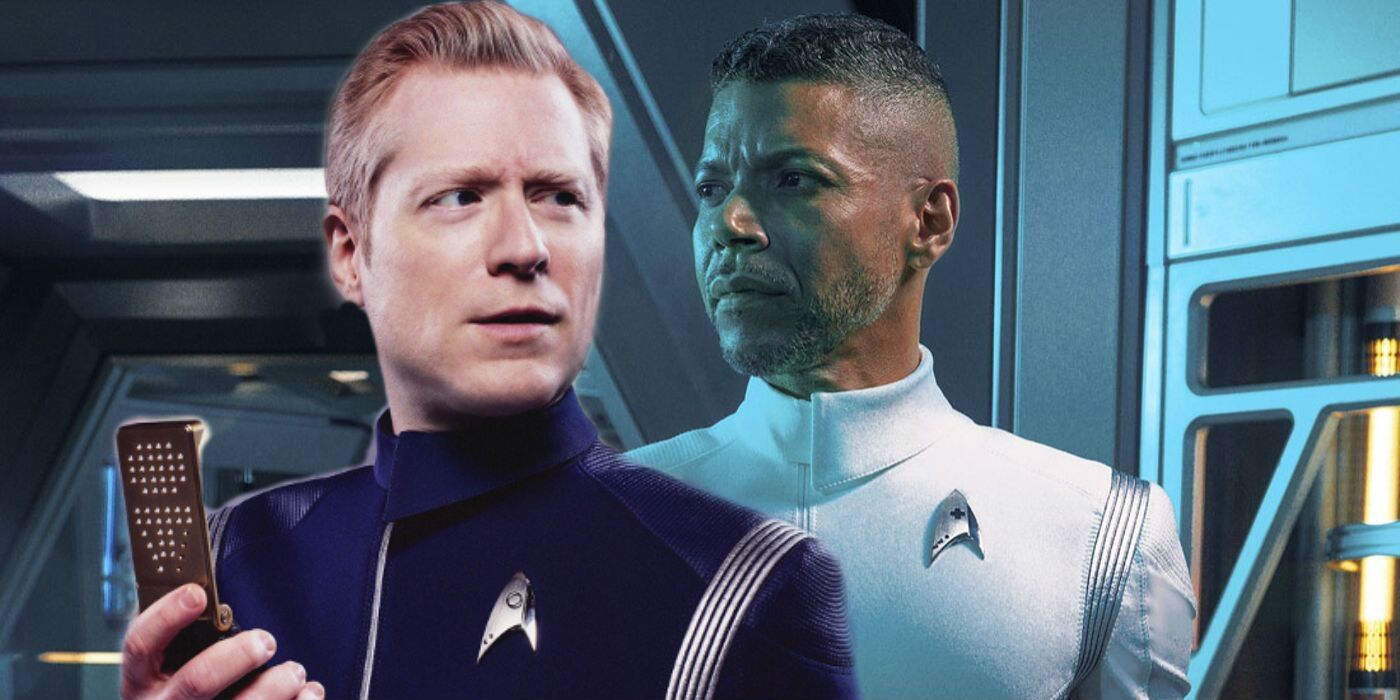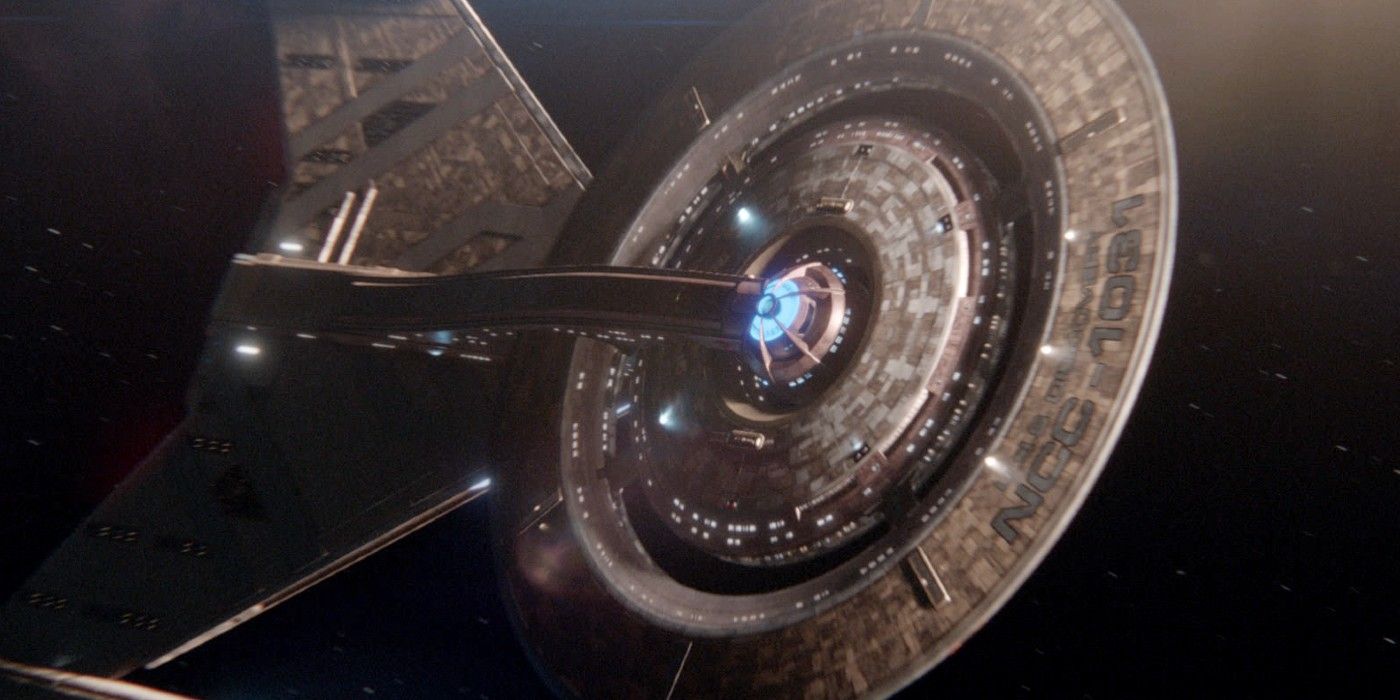Star Trek: Discovery is considered one of the most innovative and unique series in the burgeoning Star Trek franchise, effectively incorporating fan-favorite elements with new dynamic characters, layered storylines, and the best in visual effects. Nevertheless, for all its sterling contributions to the legacy of its predecessors, there's quite a bit about the series that fans have to look beyond in order to enjoy it.
From copious plot armor and an invincible main character, to universe-ending catastrophes facing the Discovery crew every other episode, fans know there are just certain aspects of the serialized chronicles that cannot be inspected too closely. While there are many aspects of the franchise that don't bear scrutiny, these are Discovery's major flaws that fans choose to ignore.
An Invincible Main Character
Star Trek: Discovery focuses primarily on one main character's journey, and while that character hasn't always been part of the bridge crew who typically see the most action, that character needs to be a part of the most interesting -and dangerous- storylines in order for the series to be compelling.
From the very first episode involving Michael Burnham causing the war with the Klingons, to investigating the Red Angel, and being flung 900 years into the future, she's survived countless situations where other characters would have died. Previous series with rotating character storylines would have spread out the stakes, instead of having one character defying death dozens of times.
Perpetually High Stakes
While many Trek series have dealt with incredibly high stakes, few have dealt with so many universe-shattering events as the crew of Discovery. They manage to save the entire universe every season, only to find themselves in the midst of another catastrophe. Whether it's the Klingon War, cross contamination of the Mirror Universe, the Red Angel, or The Burn, whatever they're apart of seems to effect everyone.
Continuing with the theme of making everything extreme, Discovery even takes something relatively innocuous, like taking a few shuttles to investigate something, and makes it into four glass bubbles hurtling through an asteroid field. It appears to be extraordinary for the sake of being extraordinary, without grounding its decisions contextually.
Patching Plot Holes
In order for the events of Discovery to not conflict with anything from the Prime Timeline, it had to have certain narrative components introduced at the end of Season 2, namely that no Starfleet officer who had any connection to the ship could admit it ever existed (this also helped explain why no other Star Trek characters ever reference a "spore drive" in other shows).
While it jumped 900 years into the future, those Starfleet officers who remained behind had to ensure its records were scrubbed from history, making the Starfleet officers in the future the only personnel who knew about it. While it's a fine plot device that gives the series some creative license without being sandwiched between major events in the franchise, it also makes fans care less because it makes it seem that what the crew does is of no consequence.
Michael Burnham Being Part Of Every Major Event
As the main character, it's imperative that the series follow Michael Burnham's story arc and see things through her perspective, but because the narrative has to remain so close to her and has so few episodes focusing entirely on different characters, she's shoehorned into every major event no matter how unnecessary her presence is.
When Adira needed to go to the surface of a planet to participate in a private communion with its inhabitants, Michael's selected to be their escort despite not being the most qualified. When Michael was repeatedly disciplined for breaking Starfleet protocol, she was selected by Admiral Vance to do the riskiest missions. She was the one character with the solution to every problem and therefore had to be a part of every conflict.
Lack Of Professionalism
Star Trek series have been criticized for being over-acted at their worst and wooden at their best, so Discovery may seem like a breath of fresh air for fans who love to see the more emotional side of their favorite characters. However, it's one thing to encourage characters to be transparent and authentic, and it's another to do so at the expense of their vocation.
While it's absolutely essential that Dr. Culber encourage the crew to talk about their mental health struggles, they need to be shown incorporating the coping tools he teaches them so they can maintain their professionalism. Fans may recall that on Star Trek: The Next Generation, having a ship's counselor and conveying the benefits of Starfleet officers working through their problems was new, but applying Counselor Troi's recommendations had a great effect.
Inconsistent Character Development
Aside from Michael, few characters go through the same amount of character development. Saru and Georgiou notwithstanding, the rest of the crew aren't given enough assignments to test their mettle, or when they are, their growth isn't revisited for more than an episode's worth of time.
Lieutenant Tilly should have gone through incredible development, yet remains the same through three seasons. She went through a rigorous training program with Michael and participated in some of the most daring situations the series had to offer to become a captain, yet she retained the same meek, anxious, and self-doubting personality. The events seemed to have no effect on her, and therefore could not be the crucible for growth as they were intended.
An Incompetent Crew
Michael has been written as the character with all the solutions due to an incredibly diverse field of expertise. Unfortunately, her vast compartments of knowledge means she undermines the expertise of her fellow crew members. For instance, she's the only one to figure out in an episode what Vulcans and Romulans couldn't figure out in 120 years.
The crew of Discovery is capable and intelligent, but everyone from Captain Lorca, to Captain Pike, to Captain Saru, and Captain Georgiou defer to Michael, which ends up making them look anything but competent.
The Handling Of Legacy Characters
It's expected at this point that characters from other Star Trek series will be included in new ones, and Discovery was no exception. It featured such famous faces as Captain Pike, Sarek, and Spock from Star Trek: The Original Series to give it weight in the franchise, even if this made other elements fractious.
Including prominent figures in the franchise like Sarek and Spock would be fine on their own, but to tie so much of their development (particularly Spock's achievements) into the circumstances surrounding Discovery seems circumspect and contrived.
Too Many LGBTQ+ Tropes
Over three seasons the series has been celebrated for having four prominent LGBTQ+ characters, but they are all in some way attached to negative storylines. The character of Gray is dead before fans even "meet" him in Season 3, Jett Reno's wife is dead in Season 2, and this shapes their partner's backstories as part of a trope known as "Bury Your Gays" that sees LGBTQ+ characters incapable of having happy endings unless they're first inflicted with pain and violence.
The most egregious trope began with the storyline of Dr. Culber getting killed in a violent fashion in Season 2. When he was resurrected, he and Stamets were not given their "happy ending". They did not reconcile in a positive way, but a very co-dependent way, and when Stamets tried to rescue him in Season 3 to prove his devotion, his attempt was met with gaslighting, violence, and still more trauma from a trusted crewmember.
Inconsistent Technology
Fans had to get used to the fact that while the series was a prequel to Star Trek: The Original Series, it wouldn't have the same aesthetic because of its better budget in 2017. With more funds to apply to set dressing, costumes, and visual effects, it would always appear even more advanced than its predecessor despite taking place before it.
In-universe explanations for incredibly advanced technology in the past are lacking, whereas even 900 years in the future where there are inventions like personal transporters, there's a surprising lack of automation, with individuals still performing tasks computer programs should be doing.

